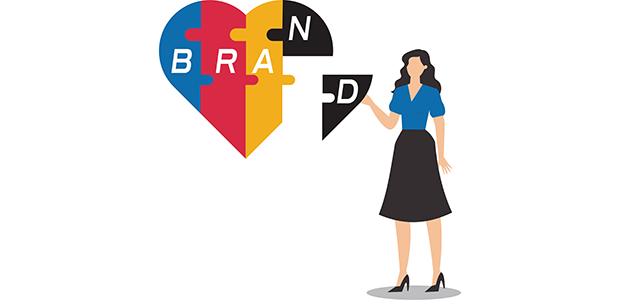
Why founding teams of startups need personal brand
You’ve built a great product and assembled a solid team, and now you're chasing investors, customers, and talent. The harsh truth is if no one knows who you are, your startup is just another name in the noise. Want people to know about your startup? Try working on your personal brand.
Many people think personal brand means chasing fame or trying to be everywhere at once. In reality, it means creating meaningful connections, establishing trust, and making sure that when people hear about your industry, they think of you. When done right, it’s an incredibly powerful way to attract investors, customers, and talent – without spending a fortune on marketing.
Why personal brand is a must
Cheaper than traditional marketing
Raising funds, hiring top talent, and closing deals all come down to one thing: trust. And while traditional marketing can help, it often takes a significant budget to see results. A well-crafted personal brand allows you to cut through the noise and create direct connections with the people who matter most to you – whether that’s investors who need to believe in your vision, customers who want to know the person behind the product, or employees who need a leader they can trust.
Investors pay attention to people, not just ideas
A great product is only part of the equation. Investors want to know who’s behind it. They want to see credibility, passion, and resilience. In fact, when reviewing pitch decks, one of the most analysed slides is the founding team. If an investor recognises your name, has read your insights, or heard you speak at an event, they’re much more likely to take your pitch seriously.
Your first customers are already in your network
For B2B startups especially, those first few customers often come from people who already know you. They can be your former colleagues, industry contacts, or even people who heard you speak at a conference. The stronger your presence, the more likely your network will think of you when they need the solution you’re offering.
Should it be just the founder or the whole team?
There’s a huge advantage when multiple members of a founding team develop their personal brands in parallel. I like to think of it as a constellation rather than a solo star. Imagine, CEO becomes a well-known visionary, the CTO is recognised as an expert in tech innovation, and the COO is a thought leader in operational excellence. Thus, the combined effect amplifies the startup’s credibility. While personal branding isn’t the only tool in your communication strategy, it’s one of the most powerful.
"I don’t have time for my personal brand" – here’s the fix
I know – startup founders are already juggling a hundred things at once. But trust me, that doesn’t mean personal branding has to be another overwhelming task. The key is to have a clear strategy, well-defined processes, and the right support team in place.
- Start with a strategy that aligns with your startup’s goals. Know what you want to be known for and who you want to reach
- Develop repeatable content processes so you don’t waste time brainstorming every single post or appearance Having templates and a structured approach makes everything easier
- Learn to delegate. Successful founders work with ghostwriters, social media managers, and PR specialists to help execute their vision without consuming their entire schedule
The biggest mistakes founders make in personal branding
- Not having a plan – posting randomly and hoping something sticks is like throwing darts in the dark. Without a clear direction, your efforts won’t be consistent, and you’ll struggle to see results
- Trying to do it all alone – some founders believe they need to personally write every LinkedIn post, craft every tweet, and engage with every comment. However, the best founders surround themselves with people who can help them execute their vision effectively
- Overthinking everything – perfectionism can be the enemy of progress. Waiting until you have the “perfect” personal brand often means never actually starting. It’s okay to evolve as you go
- Lack of authenticity – people don’t connect with polished, corporate-style personas. They want to see the real journey, including the struggles, lessons, and occasional missteps. If everything you share is a curated highlight reel, you’re missing the opportunity to build real connections
- Starting strong, then disappearing – a burst of activity followed by months of silence does more harm than good. Consistency is what builds credibility over time. Even small, regular actions add up
The myths that hold founders back
"Personal branding replaces the need for a communication strategy"
- A strong personal brand is an asset, but it’s part of a bigger puzzle. It should work alongside other marketing and PR efforts, not replace them
"I have to do everything myself"
- Many founders assume that if they aren’t personally writing every post or appearing in every video, their personal brand isn’t “authentic.” In reality, the best brands are built with smart delegation, allowing founders to focus on their strengths while their team supports their visibility
"I don’t have anything valuable to share"
- So many startup founders hold themselves back because they think their insights aren’t unique. Actually, your experiences, lessons, and industry knowledge are incredibly valuable to others – especially those a few steps behind you. People follow relatable leaders who share their real journey
A strong personal brand isn’t just an ego boost – it’s a strategic advantage. The founders who actively invest in their visibility and credibility find it easier to raise funds, hire top talent, and attract customers. The best time to start building your personal brand was yesterday. The second-best time? Right now. So, how will you start shaping yours?

